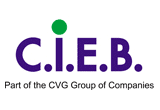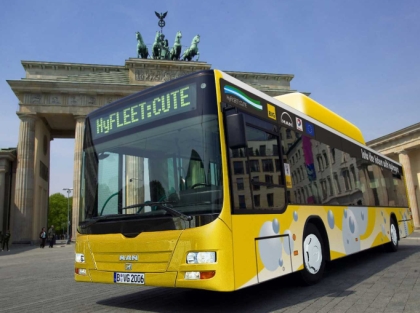
Technika spalování vodíku bude testována v praxi během fotbalového šampionátu 2006.
(Fourteen buses with hydrogen combustion engines from MAN for the EU HyFLEET:CUTE project in Berlin.)
Technika spalování vodíku bude testována v praxi během fotbalového šampionátu 2006.
(Fourteen buses with hydrogen combustion engines from MAN for the EU HyFLEET:CUTE project in Berlin.)
Fourteen buses with hydrogen combustion engines from MAN for the EU HyFLEET:CUTE project in Berlin
Technika spalování vodíku bude otestována v praxi se zákazníky poprvé během fotbalového šampionátu 2006.Na BUSportálu jste si mohli přečíst:
Vodíkové autobusy MAN v běžném provozu.
Salzgitter/Stuttgart březen 2006 - MAN Nutzfahrzeuge AG a NEOMAN Bus GmbH rozšiřují svůj závazek na poli alternativních pohonů a stávají se účastníky projektu EU HyFLEET:CUTE pro podporu vodíkové technologie, představené na začátku roku 2006. V následujících dvou letech bude dodáno berlínským zastupitelům BVG 14 dvounápravových autobusů MAN Lion's City s vodíkovým motorem. Budou provozovány v praxi, dokud projekt neskončí v roce 2009. Futuristická technologie bude připravena pro sériovou výrobu v několika letech.V rámci projektu HyFLEET:CUTE budou dvě vodíkové technologie - palivový článek a spalovací motor - poprvé kombinovány v evropském projektu. Společnost Berlin transport authority (BVG) jako jeden z partnerů projektu bude využívat první vodíkové autobusy ve veřejné dopravě od léta 2006 jako pilotní klíčový zákazník. Flotila 14 autobusů je tvořena čtyřmi vozy se sacím a dalších deset s přeplňovaným turbo motorem.
Jako část projektu společnosti BVG bude zřízení speciální servisní haly pro vodíkové autobusy u stanice Berlin-Spandau spolu s vedle umístěnou veřejnou plnicí stanicí TOTAL, kde budou jak konvenční pohonné hmoty, tak vodík v plynném i tekutém skupenství.
Poprvé v autobuse byl vodíkový spalovcí motor použit v Mnichově v roce 1996. V polovině roku 1999 začal MAN testovat tři nízkopodlažní článkové autobusy s nádržemi na stlačený vodík pro veřejný provoz na letištní rampě mnichovského letiště. Tyto tři autobusy již ujely přes 450,000 kilometrů. Takzvaný “H2argemuc-Projekt“ nedávno expandoval do lokální veřejné dopravy dvěma vozidly jezdícími v blízkosti letiště. Zde je nasazen poslední hybridní autobus s palivovými články MAN s moderními NiMH bateriemi.
Základní funkce vodíkových spalovacích motorů MAN široce korespondují s dlouho využívanými a testovanými CNG motory, kterých bylo postaveno již několik tisíc. Jsou to čtyřtaktní inline šestiválcové motory. Protože motory byly odvozeny ze sériových CNG motorů, byly dodatečné náklady nízké a vedle toho také prošly roky testů. Dnešní vodíkové spalovací motory MAN dokonce plní normy budoucnosti včetně standardu EEV.
MAN očekává, že vodíkový spalovací motor bude připraven pro sériovou produkci v několika letech. Z tohoto důvodu NEOMAN Bus GmbH také jedná s budoucími zákazníky v Evropě o dodávkách těchto vozidel od roku 2007 po ukončení projektu HyFLEET:CUTE.
Projekt HyFLEET:CUTE je sponzorován Evropskou komisí spolu s šesti hlavními výzkumnými úkoly. Jedná se o mezinárodní předváděcí projekt pro lokální veřejnou dopravu v Evropě s 31 partnery z obchodu, vědy a politiky. Projekt, plánovaný na čtyři roky, bude výrazným, do budoucna orientovaným projektem městských autobusů a technologií a metod spojených s produkcí a distribucí vodíku.
NEOMAN Bus je autobusová divize skupiny MAN Nutzfahrzeuge. Společnost vyvíjí vyrábí a prodává autobusy a autokary MAN a NEOPLAN. Ve fiskálním roce 2005 NEOMAN Bus dosáhl obrat 1 200 milionů EUR (€ 1.2 billion) s 8000 zaměstnanci a přes 6000 prodanými autobusy a podvozky.Zdroj: Tisková zpráva NEOMAN Bus GmbH, překlad a úprava BUSportál.
Fourteen buses with hydrogen combustion engines from MAN for the EU HyFLEET:CUTE project in Berlin
Hydrogen combustion engineering will be undergoing field trials with customers for the first time at the world football championship 2006Salzgitter/Stuttgart March 2006 - MAN Nutzfahrzeuge AG and NEOMAN Bus GmbH are extending their commitment in the field of alternative drives even farther and are taking part in the EU HyFLEET:CUTE project for the promotion of hydrogen technology which was launched at the beginning of 2006. Within the next two years a total of 14 MAN Lion's City two-axle buses with hydrogen combustion engines will be delivered to the Berlin transport authority BVG. They will be operated there in practical trials until the project ends in early 2009. This future–oriented technology will be ready for series production in just a few years. Wolfgang Fahrnberger, Chairman of the Management Board of NEOMAN Bus GmbH, declared: “We consider this technology, which can be realised in the medium term, to be a consistent start towards the future of zero-emission drives in the very important field of local public transport. We shall continue along this path in close cooperation with our customers with a view to creating a more environmentally friendly future.“
Within the framework of the new HyFLEET:CUTE project the two future hydrogen technologies - fuel-cell drive and combustion engines - will be combined for the first time for a cross-border European project. The Berlin transport authority (BVG) as one of the project partners will be using the first hydrogen buses in public transport starting from summer 2006 and then acting as the pilot key-account customer. The fleet of 14 buses is made up of four with naturally- aspirated engines and a further ten with supercharged turbo-engines.
As part of the project BVG will be setting up a special maintenance hall for hydrogen buses at its bus station in Berlin-Spandau. TOTAL has built a new filling station right beside this bus station. Beside conventional fuels, this public filling station also offers hydrogen as a gaseous and a liquid fuel. Most of the gaseous hydrogen needed for the buses will be produced on site by a liquid gas reformer. BVG, TOTAL and MAN have already been gaining their first experience with the operation of hydrogen buses in scheduled service since 2004.
The first time a bus with a hydrogen combustion engine was used was in Munich and Erlangen in 1996. In mid 1999 MAN started testing three low-floor articulated buses with compressed hydrogen storage for public transport on the apron of Munich Airport, and these three buses have already covered over 450,000 kilometres. The so-called “H2argemuc-Projekt“ has recently been expanded to local public transport with two vehicles operating near the airport. Here the latest MAN hybrid fuel cell bus with modern NiMH batteries is used as an energy accumulator.
The basic functioning of the MAN hydrogen combustion engines largely corresponds with MAN’s long tried-and tested natural-gas engines, several thousand of which have been built. They are thus in-line, six-cylinder engines which function according to the four-stroke Otto principle. Since the engines have been derived from series natural-gas engines the extra costs can be kept low, and beside this they have also undergone many years of tests. Even today MAN’s hydrogen combustion engines fall far beneath the future EU exhaust-gas limits and thus easily fulfil the EEV standard.
With the findings from this project the new drive technology can take a further development step to prove its practical suitability which will finally lead to it being ready for series production. MAN expects the hydrogen combustion engine to be ready for production in the next few years. For this reason NEOMAN Bus GmbH is also negotiating with further customers throughout Europe about the delivery of other vehicles from 2007 after the conclusion of the HyFLEET:CUTE project.
The HyFLEET:CUTE hydrogen project is sponsored by the European Commission within its sixth general research programme. It is an international demonstration project for local public transport in Europe in which 31 partners from the field of business, science and politics have teamed up to promote hydrogen technology. This project, which is planned to run for a period four years, will highlight future-oriented drive concepts in city buses and technologies and methods of producing and distributing hydrogen.
NEOMAN Bus is the Bus Division of the MAN Nutzfahrzeuge Group. The company develops, produces and markets MAN and NEOPLAN buses and coaches. In the fiscal year 2005 NEOMAN Bus recorded a turnover of € 1.2 billion with a workforce of 8,000 and over 6,000 bus and chassis sales.PR NEOMAN Bus GmbH



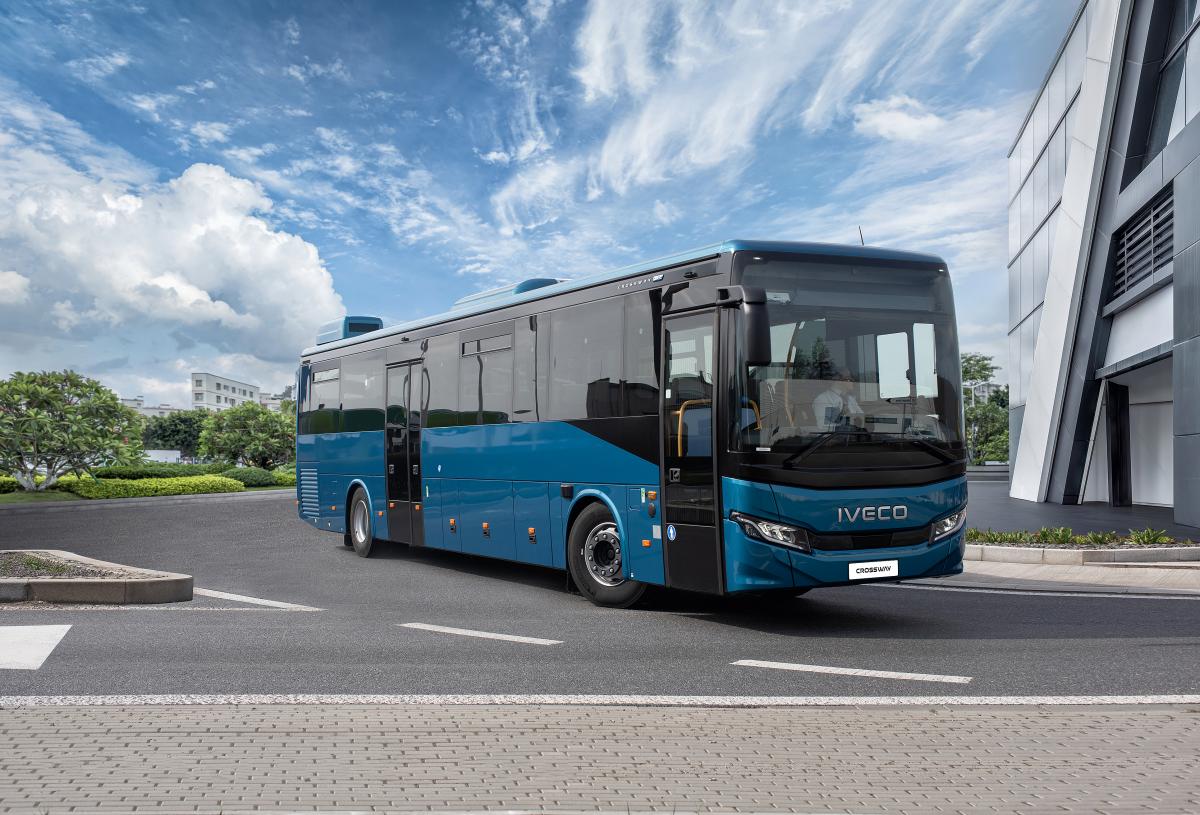 Ve Vysokém Mýtě se bude vyrábět CROSSWAY intercity v…
Ve Vysokém Mýtě se bude vyrábět CROSSWAY intercity v…
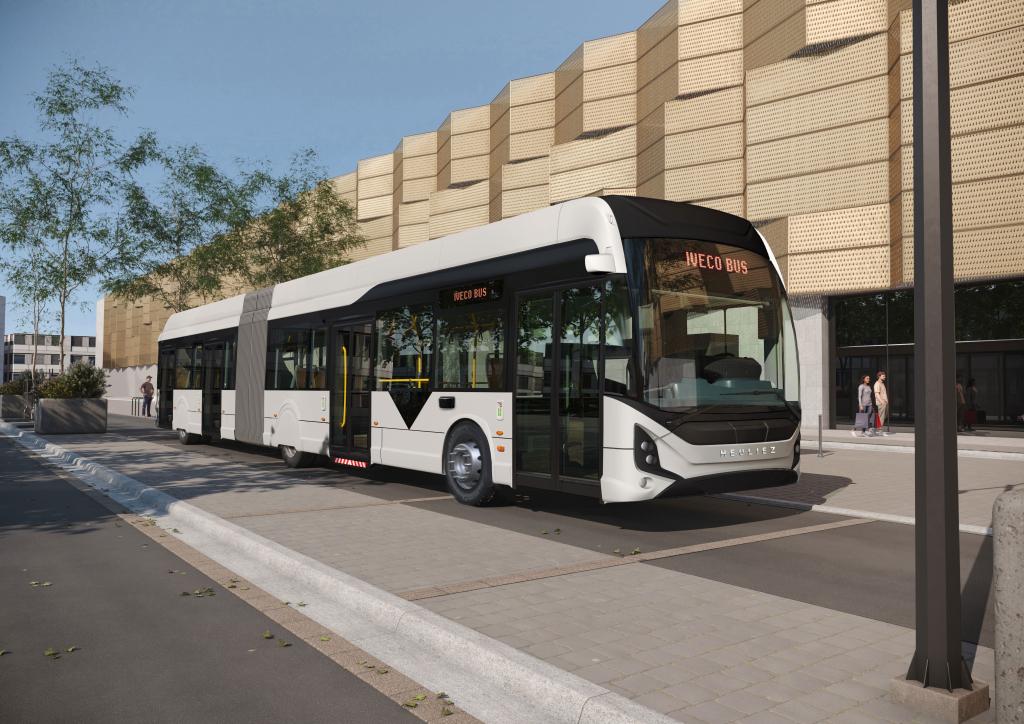 Aglomeraci Saint-Nazaire elektrifikuje HEULIEZ
Aglomeraci Saint-Nazaire elektrifikuje HEULIEZ
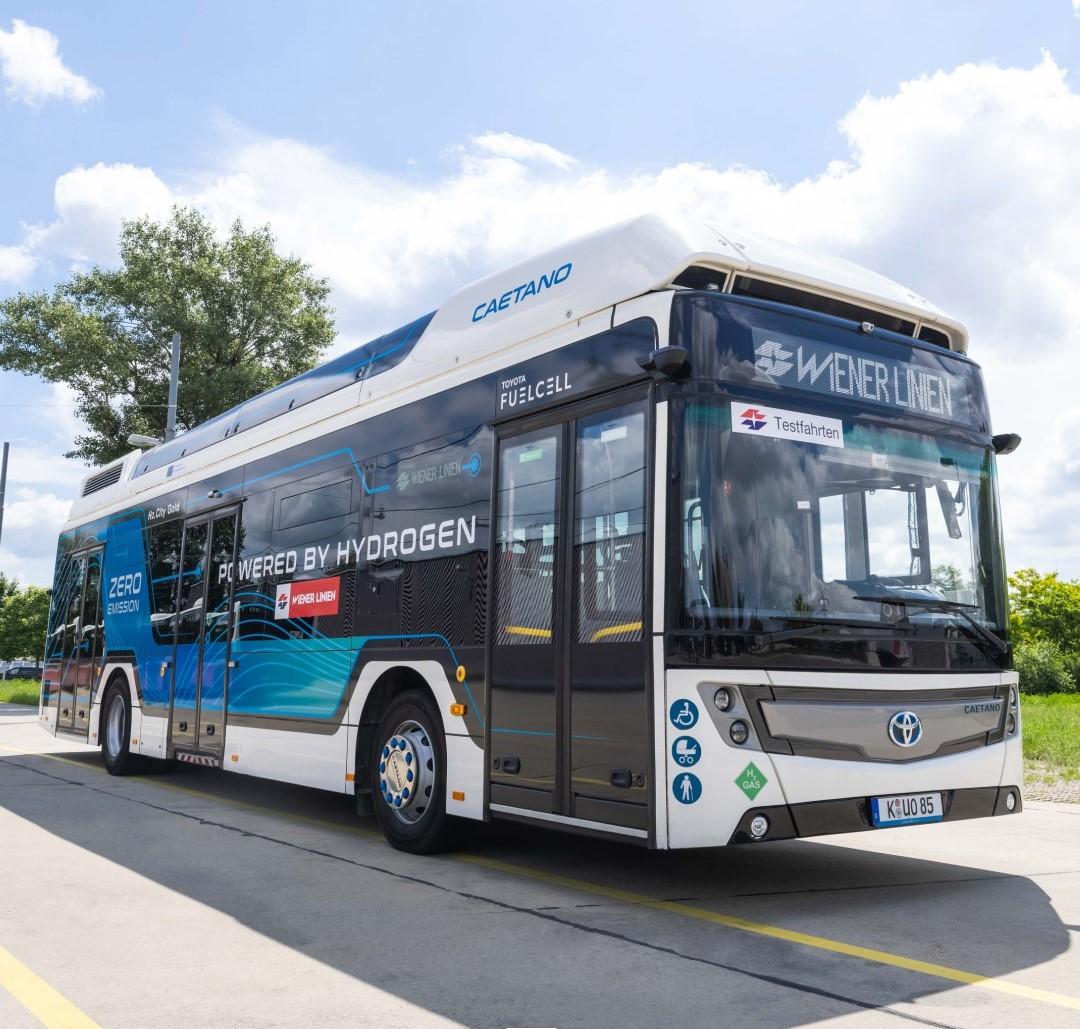 Do Vídně přijedou autobusy na vodík Toyota Caetano H2.City…
Do Vídně přijedou autobusy na vodík Toyota Caetano H2.City…






